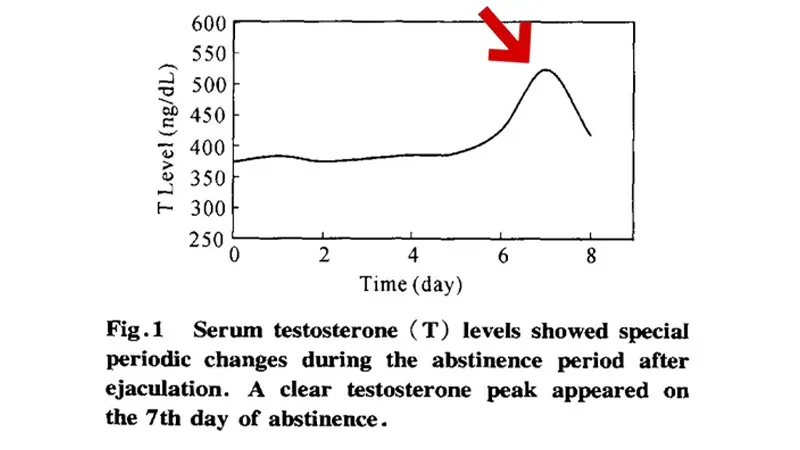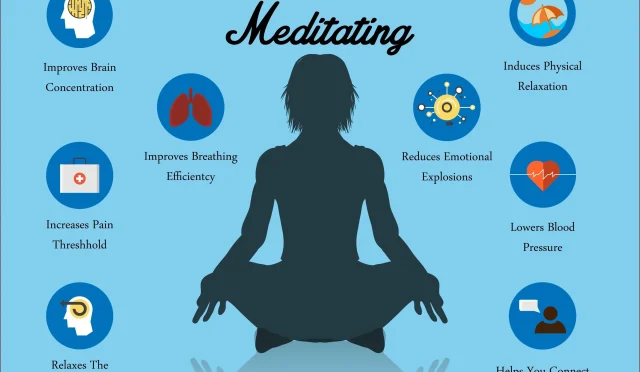Masturbation and Testosterone: What You Need to Know
Masturbation and testosterone are two topics that often spark curiosity and debate among health enthusiasts and medical professionals alike. Many people wonder whether does masturbation lower testosterone or have any significant effects on their hormone levels. Research indicates that while there might be a fleeting increase in testosterone during arousal or ejaculation, long-term changes in testosterone levels due to regular masturbation are quite minimal. It’s important to separate fact from fiction, as numerous myths surround the relationship between the act of masturbation and testosterone, leaving many to question if engaging in this normal behavior could actually serve as a testosterone booster. Understanding the effects of masturbation will not only enlighten men about their sexual health but could also guide them in managing their testosterone levels more effectively.
The interplay between self-pleasure and male hormone levels is a captivating subject that merits closer exploration. Often referred to as the act of self-stimulation, many individuals question how this behavior impacts their endocrine system. When discussing this relationship, it’s crucial to address whether ejaculation and testosterone levels are interlinked or if they predominantly exist as independent functions. Despite widespread beliefs, studies suggest that the fluctuations associated with sexual arousal do not significantly influence total testosterone levels over time. Consequently, the broader implications of frequent self-gratification on one’s health are better understood when we analyze sexual health from a comprehensive perspective.
Understanding the Effects of Masturbation on Testosterone Levels
Masturbation is often associated with a myriad of health benefits, but its relationship with testosterone levels is complex and sometimes misunderstood. While some people believe that masturbation might decrease testosterone levels, studies suggest otherwise. According to urologist Dr. Hotaling, the hormonal fluctuations in testosterone levels can be influenced by many factors, including arousal and sexual activity, making it challenging to isolate the impact of masturbation alone. Even though some transient increases can occur during arousal, they do not lead to significant or sustained changes in testosterone levels.
Research has shown mixed results regarding the effects of masturbation on testosterone. For example, a 2021 study indicated that repeated masturbation might prevent a decline in free testosterone levels temporarily, although total testosterone remained largely unaffected. This highlights that while there may be moments of increased testosterone around sexual activity, masturbation does not fundamentally alter long-term testosterone levels or significantly boost them in a way that would impact sexual health.
The Myth of Masturbation Lowering Testosterone
The myth that masturbation lowers testosterone is one that pervades many discussions about male sexual health. Various studies and expert opinions refute this notion, suggesting that sexual activity—including masturbation—does not adversely affect testosterone levels. Urologist Dr. McNeil points out that testosterone levels are naturally highest in the morning and fluctuate throughout the day, leading to variations that may coincide with sexual excitement but do not conclusively show that masturbation has a long-term negative effect on testosterone.
It’s essential to dispel this myth because an inaccurate understanding of how masturbation interacts with testosterone can lead to unnecessary anxiety regarding sexual performance and health. Furthermore, ejaculation can even foster a healthy sexual drive, as maintaining regular sexual activity is linked to better overall health. Hence, there is little evidence to support the belief that abstaining from masturbation will lead to higher testosterone, as confirmed by various clinical studies monitoring hormonal responses.
Ejaculation and Testosterone: What You Need to Know
The relationship between ejaculation and testosterone is a topic of ongoing research in the medical community. While some believe that ejaculation, either through masturbation or sexual intercourse, could influence testosterone levels, current evidence suggests that the effect is minimal and temporary. Dr. McNeil indicates that there might be a slight increase in testosterone post-ejaculation; however, this boost is not significant enough to change overall testosterone levels or affect long-term testosterone production.
In practice, doctors often test testosterone levels in the morning when they are naturally highest, suggesting that recent ejaculation may not skew test results. While a transient spike can happen just after ejaculation, it does not represent a sustainable change in hormonal balance. Therefore, men can feel reassured that their sexual health and habits, including ejaculation frequency, don’t adversely influence their testosterone levels significantly.
Symptoms of Low Testosterone: How to Identify Issues
Low testosterone can manifest in numerous ways, often impacting sexual health and overall well-being. Symptoms such as decreased libido, erectile dysfunction, and lower energy levels can indicate that testosterone levels might be dwindling. As urology physician assistant JD Golon emphasizes, sexual function serves as a significant indicator of a man’s hormonal health. If you find that your interest in sex has diminished or that achieving an erection feels more challenging than before, it may be time to consider a testosterone assessment.
Additionally, men experiencing symptoms like irritability, fatigue, or a lack of enjoyment in activities they once loved should take these signs seriously. The relationship between testosterone and sexual health is intricate, and sometimes shifts in libido can be attributed to various factors beyond just hormone levels. Hence, if you suspect low testosterone, seeking a professional evaluation from a doctor is critical to address any underlying issues and discuss potential treatment options.
When to Consult a Doctor About Testosterone Levels
Recognizing when to seek medical advice regarding testosterone levels is vital for maintaining sexual health. If you’re experiencing persistent changes in libido, developing erectile dysfunction, or encountering other sexual health issues, a consultation with a healthcare provider is warranted. Dr. McNeil advises that discussions around these symptoms should not be avoided as they could signify low testosterone levels, potentially requiring a blood test for confirmation.
Even when considering testosterone replacement therapy, it’s crucial to engage in open conversations with your doctor. They can assess whether this therapy fits your needs and guide you on monitoring your hormone levels over time. With fertility considerations in mind, addressing testosterone changes and seeking assistance can lead to improved health and well-being, allowing for better management of sexual health concerns.
Frequently Asked Questions
Does masturbation lower testosterone levels?
No, masturbation does not lower testosterone levels. Studies have shown that while there may be a transient increase in testosterone during arousal, these changes are not significant enough to affect overall testosterone levels.
How does ejaculation affect testosterone levels?
Ejaculation appears to have minimal impact on testosterone levels. While there are fluctuations in testosterone throughout the day, masturbation and ejaculation do not significantly raise or lower testosterone levels in a sustained manner.
Can masturbation serve as a testosterone booster?
Masturbation does not act as a testosterone booster. While engaging in sexual activity may cause temporary increases in testosterone due to arousal, it does not lead to any long-term elevation in testosterone levels.
What are the effects of masturbation on hormonal balance?
The effects of masturbation on hormonal balance, including testosterone, have been shown to be temporary. A study indicated that masturbation may help maintain free testosterone, but overall levels remain largely unchanged.
How do testosterone levels vary with sexual activity?
Testosterone levels naturally fluctuate throughout the day and are typically higher in the morning. While sexual arousal can cause temporary spikes, regular sexual activity including masturbation does not have a lasting effect on testosterone levels.
What should I do if I suspect low testosterone levels due to sexual health symptoms?
If you’re experiencing symptoms of low testosterone, such as low libido or erectile dysfunction, consult a doctor. They can perform a blood test to check your testosterone levels and discuss potential treatments, like testosterone replacement therapy.
Is there a connection between libido and testosterone levels?
Yes, testosterone levels are closely linked to libido. Low testosterone can lead to a reduced sex drive and may impact erections and overall sexual health.
How does frequency of masturbation relate to testosterone levels?
The frequency of masturbation does not have a lasting effect on testosterone levels. Research suggests that while short-term fluctuations may occur, they do not result in significant changes in total testosterone.
Are there any myths about masturbation and testosterone?
One common myth is that masturbation lowers testosterone levels. However, research shows this is not true; masturbation does not negatively impact testosterone levels in the long term.
When is the best time to test testosterone levels?
The best time to test testosterone levels is in the morning when levels are highest. It’s advised to avoid ejaculation shortly before the test, as it may cause temporary changes, although those changes are typically negligible.
| Key Point | Details |
|---|---|
| Masturbation’s Benefits | Lowers stress, boosts mood, aids sleep, may lower prostate cancer risk, and potentially increase longevity. |
| Testosterone Levels & Masturbation | Limited studies show masturbation may have a temporary effect but does not significantly alter testosterone levels overall. |
| Transient Increases | Some transient increases in testosterone may occur during arousal but are not sustained. |
| Testing Testosterone | Testosterone levels peak in the morning; recent ejaculation likely does not affect test results significantly. |
| Symptoms of Low Testosterone | Signs include low libido, erectile dysfunction, decreased semen volume, fatigue, irritability, and reduced enjoyment of activities. |
| When to Seek Medical Help | Consult a doctor if experiencing sexual dysfunction or changes in libido; blood tests can determine testosterone levels and therapy options. |
Summary
Masturbation and testosterone are subjects of significant interest in men’s health. While masturbation offers various health benefits, including reduced stress and improved mood, its effect on testosterone levels remains ambiguous. Studies show that although there may be transient increases in testosterone during arousal, these are not sustained and masturbation does not significantly alter overall testosterone levels. Understanding the relationship between masturbation and testosterone is crucial for addressing concerns about low testosterone symptoms and sexual health. If you are experiencing issues related to libido or sexual function, it is advisable to consult a healthcare provider for further evaluation and potential treatments.
#TestosteroneHealth #MaleWellness #HormoneBalance #MensHealth #HealthEducation








